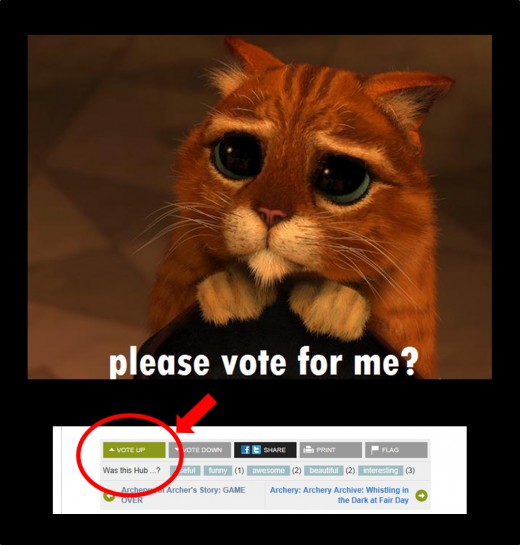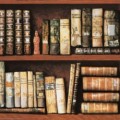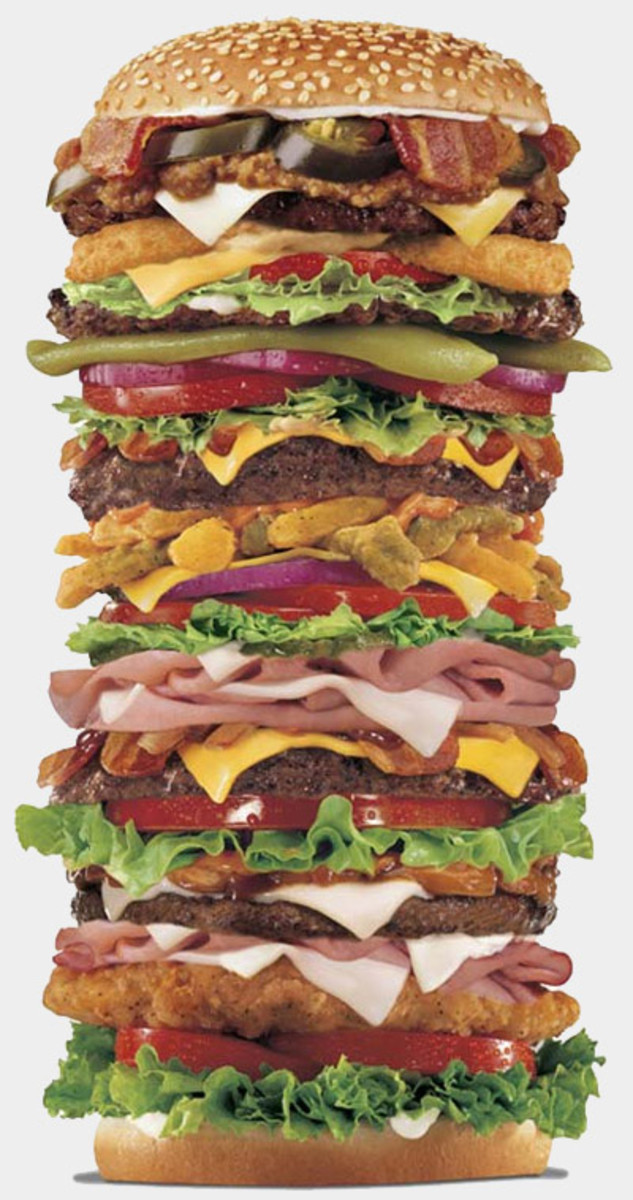Uffish Thoughts on Reading
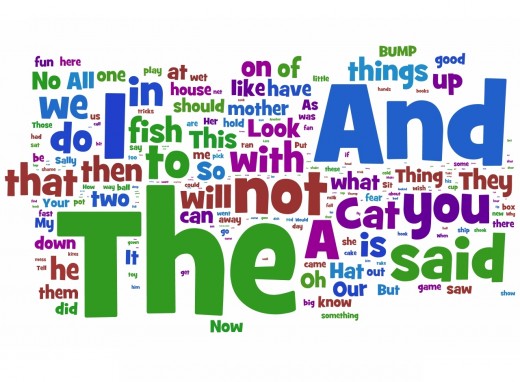
By Nils Visser
So, a general introduction of myself as a reader and six diary form entries on reading, essentially aimed at reading children’s literature, one entry a week for six weeks. I might be able to manage that. The “diary” form is, of course, a formulation which simply invites trouble, my interpretation of it is a license to spew out whatever happens to be riding the magic roundabout contained by the circumference of my thick skull. Moreover, the childhood aspect involved is a carte blanche to open all sorts of doors and windows which have been locked, neglected or half-forgotten over the years, possibly for good reasons. *Grin*. As for that star-crossed conveyance of a digital smile, the modern version of a diary is, of course, a blog, and as such I present it here, allowing me the unorthodox multi-dimensional presentation style of the Internet. Not English I hear you say? Really? What uffish thoughts you burble. Such a mimsy attempt to gymble gaps in my reasoning could well make me frumious. Instead I’ll just chortle that you can whiffle all you want but “galumphing” didn’t used to be an English word either and now has a frabjous position in the Oxford English Dictionary, you’ll find it by the “G” section.
(Mandatory Soundtrack: http://www.youtube.com/watch?v=ac186kDfHP8 )
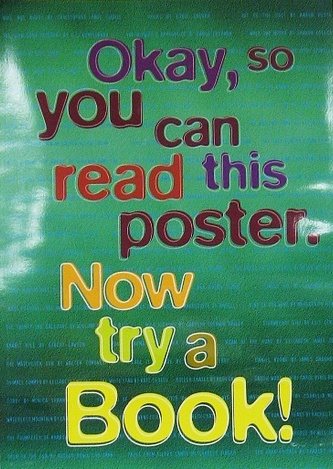
WHY DO YOU READ?
Fairbow Nederland: To grow
Judith van der Kruis: To experience other people’s lives, fantasies, ideas, cultures.
Simon (9): Because it is fun, it diverts from reality and it enables me to create magnificent stories in my head.
Mascha van Houteghem: As Simon’s mum, I would add that, as mom and dad read most of the time, there is some modeling too... ;-)At breakfast dad is absorbed in the newspaper, so... what else to do while eating?
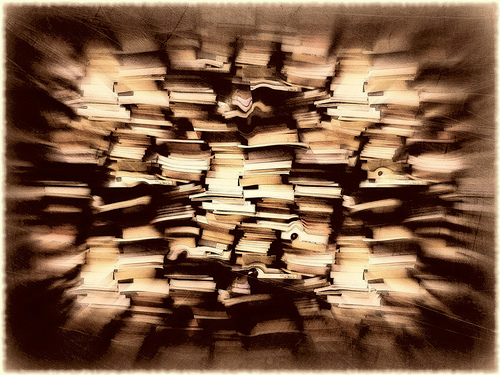
Uffish Thoughts continued
In further re-defining the task related instructions, it is only fair to issue a warning that the invitation to embark on this magical mystery tour means an immediate cessation of accepted boundaries. Childhood? Sure, I’m reliving it at the moment, quite happily indulging in a chronic and incurable Peter Pan Complex (to the delight of my spouse who accepted me as a temporary stand-in for that mature, thoughtful, mysterious and understanding prince on a white horse many many years ago). Therefore, it stands to reason that the concept of childhood spans a good 42 years and hopefully a great deal longer. Prose? Hmm, as far as I am concerned good prose is near impeccable and therefore poetic by very definition. As both prose (of the sublime kind) and poetry involve a wee pinch of imagination, the fantastical powers of the mind will also feature and all three shall be mixed in a figurative smoothie, a nutritious meal with which to feed your head. To keep the whole somewhat appetizing we will try the avoid the literary version of mushy road kill, which Chaucer so aptly defined as akin to “Shite”:
“…for thou makest me so wery of thy verray lewednesse….min eres aken of thy drasty speche….thy drasty rymyng is nat worth a toord, thou doost noght elles but despendest tyme.”
(Chaucer’s Tale of Sir Thopas)
So, once more unto the breach, dear friends, once more enter that infinite maze of aimless rambling that marks yet another audacious transformation of task related instructions and that has verily become my signature style, as a loyal adherent to the twenty-first century school of Cynically Observant Casual Kibitzers. It may be true that nothing so becomes a man as modest stillness and humility, but I do prefer to imitate the action of the tiger whose eyes saw distant deeps and skies. The game’s afoot, follow me.
(Mandatory Soundtrack: http://www.youtube.com/watch?v=jVkF6ud5Pms&feature=related)

WHY DO YOU READ?
Inge van Dijk: Because it’s nice.
Judith van der Kruis: So I don’t have to watch bad TV.
Ruth Israel: Because it cost quite a bit of effort to learn how to do it.
Tjeerd van Pelt: I can’t raise the concentration to read a book. I manage short news items.
Cindy Hempenius: To learn…and you’re never ever done learning….
Noralie Oberendorf: I read because I spend a lot of time travelling by train and I don’t want to get bored.
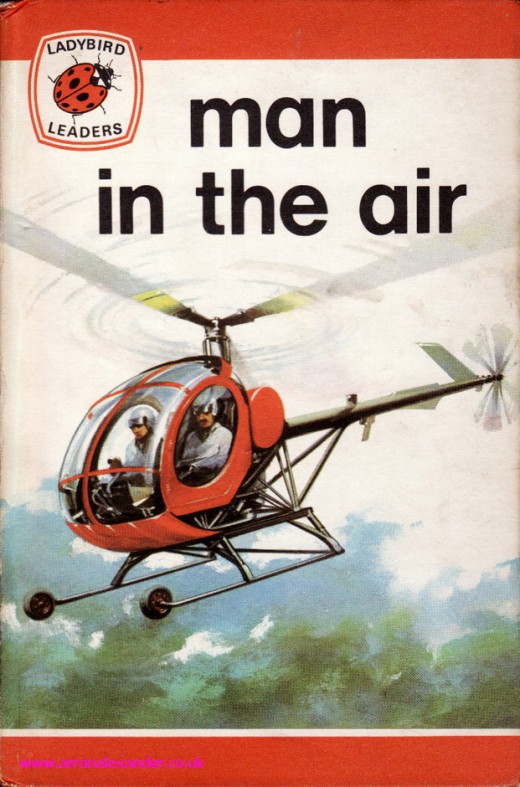
More Uffish Thoughts
The commendable advice I received was to kick off with an analysis of myself as a young reader. If this was in the hope of allowing the self-discovery of a consistent trend or pattern in the ranks of youthful readers I fear that we may be in for some disappointment. The only consistent pattern in my life so far, is my ingrained ability to avoid falling into consistent patterns. While some, well, one person really, likes to attribute this to some sort of inherent genius, others point at deliberate obtuseness or plain stupid stubbornness. Anyhow, the jury is still out on that one and fortunately this diary entry doesn’t allow us the scope to look into that one too closely. Suffice to say that patterns and I don’t get along well. There are a few exceptions of course, but reading isn’t one of them.
I don’t recall not being able to read.
Text message to my mother: How old was I when I started to read?
There must have been a time when I couldn’t read. My first memories of reading date back to 1974 when I was four years old. At the time I could read in Dutch, English and Thai. However, I don’t think I was very aware of which language was which. I understood all of them, but years later, unpacking a box of old books, I was surprised to find that some stories which had been embedded in my mind had been written in another language, one of which, Thai, I couldn’t read or understand anymore and another, English, had become quite rusty after years of neglect. I do recall going to primary school in the Netherlands after we returned from Thailand in ’75 and causing quite a ruckus because the teachers weren’t at all pleased that I had already been taught how to read. They called in my mother and told her off, teaching kids how to read was their job, I might have picked up wrong things. As a secondary school teacher this strikes me as being ludicrous, telling a kid off because he or she is able to read. But there you go.
Text message from my mother: You were very young, you started to recognize letters and words when you were four. Once you started reading you never stopped.
I wasn’t, much as I would like to have been, any kind of literary genius though. One of the “books” in that box, for example, was Man in the Air (a Ladybird Book Leaders Series 737 First Edition Matt Hardback 1973). Moreover, the reason I loved that wee book to death was because I really liked the livery colours of the different airlines. I still do. I haven’t got a clue how those huge aluminium monstrosities actually fly, never cared either. I do know they have very prettily coloured liveries, especially the tails, and used to be able to attach a name to the tail livery of practically every airline company in Asia and Europe. There’s a certain elegance to the rows of neatly coloured tails of jet planes parked at an airport terminal which strikes a chord in me still, I’ll even admit I find it beautiful to behold. Perhaps it’s the otherwise grey industrial surrounding in which the bright colours convey extra splendour? Or the association with the fact that I’m on the road, going somewhere. Possibly it’s Man in the Air, for I find it increasingly amazing what a lasting impact and influence childhood books can have.
Not being a genius, by the way, is the story of my life. My I.Q. usually measures in around the 135 mark, which signifies reasonably high intelligence, but I like to hang around -and am attracted to- people who tend to exceed that by miles, making me quite the dummy of the company, falling short of the folks who really hit the genius mark.
Show one of my mates a Boeing 737-800 and they’ll probably tell you it has room for 162 passengers in a 2-class configuration and a cargo capacity of 1,555 cubic feet. Moreover, they’ll add confidently, the CFMI CFM56-7 engines have a 27,300 pound thrust capacity, and the plain carries a fuel capacity of 6,875 U.S. gallons, allowing for a maximum take-off weight of 174,200 pounds. The aircraft has a typical cruise speed of 785 Mach at 35,000 feet and a maximum range of 3,115 nautical miles. The wing span measures in at 112 feet and 7 inches, though this is extended to 117 feet and 5 inches if winglets are added. The aircraft is 129 feet and 6 inches long, with a tail height of 41 feet and 2 inches.
Me, I don’t even know what half of that means, but I will chip in at the end, rather excitedly because all those numbers seem really impressive, to add that if the tail is red with a stylized white kangaroo it’s a Qantas plane.





WHY DO YOU READ?
Mascha van Houteghem:As when I answer for myself... I love reading, it carries me elsewhere. I admire the skill of the author capable in doing so... when style starts bothering me, I stop and skip to something else... I do not stop reading before 50-100 pages, but I never finish a novel that continues to bother me stylistically after 100 pages. And... novels teach me about people... I often don't get the reason of their words and actions in real live... in novels you can get a peek in their head... makes things more simple ;-) Same goes for movies by the way... but as for the written word I’m picky….often leave the cinema, or stop watching, I never go for soaps and rarely for series.
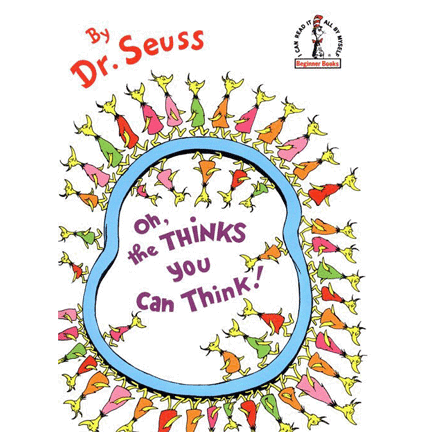
YET MORE UFFISH THOUGHTS
Have I drifted off course? Of course not, in understanding me as a reader one needs to be aware of key life frustrations. Whereas cubic feet and jet thrust capacity leave me unstirred or feeling ignorant, I can recall scenes, or rather my emotive experience of scenes from books I read when I was but a wee brat. Literature and fiction have become my area of expertise. This is where I can come to the fore and confidently expound on the subject matter. Still no specs, by the way, I have no idea how many books were printed in the first, second or third editions, nor do I have any notion of how pretty the sales figures looked or how much marketing was involved. However, when it comes down to narrative drive, plot, character, exposition, catharsis etcetera, well hey, welcome to my world.
This started at primary school, reading was my domain, I was king of the reading group. Sounds impressive? Being six-year-old royalty? It wasn’t, it was akin to torture. The books that were chosen weren’t proper books, but samples from books, apparently reading a whole book was too daunting a prospect for wee ones. Furthermore, the level was, to my mind, rather simplistic and we had to share books, there weren’t enough for every pupil to have one of his or her own. That meant that by the time my fellow pupils had finished the first of the two visible pages I had read the whole lot four times already and had no alternative course of action but to demonstrate my charming lack of diplomatic skills by exhorting them to read faster, “Come on your morons, hurry up, are you retarded or something?”
This would inevitably end with one or two fellow pupils in tears (sissies) and me being admonished by a teacher or two. The latter was preferable to the times that mothers were in attendance for the reading sessions, as they tend to get quite upset when you point out that their offspring are as thick as pig shit. That, by the way, is a very valuable lesson which I still benefit from on a daily basis in my profession as a teacher, these days I rarely tell parents that their kid’s intelligence has a remarkable resemblance to pig manure. Back then, it was all really terribly unfair, me getting into trouble because the snotty little whiners in my reading group didn’t own two brain cells to rub together. As I tried to tell my teachers: “Why blame me? They’re the idiots, not me.”
The deficit at school was compensated for at home. I grew up in a reading environment. When I think back on it, I often heard “no” when I would ask for candy, Playmobil, candy, Matchbox cars, candy, Lego sets, candy or Tonka Toys. I never heard “no” in a bookstore, I always got a book when asked if I could have it. I wish I had had this hindsight back then, I could have doubled the requests. Besides the apparently inexhaustible supply of reading materials, my parents were staunch bedtime readers. We, meaning my brother and I, were guaranteed storytelling at bedtime, at the least half-an-hour a night, with sufficient haggling an hour’s worth. There was no cutting corners either, we knew our favourite books by heart and would notice any omissions from the tales of the travels of Captain Bontekoe or Tiuri and Piak’s heroic attempt to first deliver the King of Unauwen a secret letter and then reveal to him the existence of the secret army his evil son had gathered in the Wild Woods at the end of the secret mountain road. Waiting a whole 24 hours for the next instalment was quite unbearable, lights out meant disappearing under the blankets with whatever book was being read from and a torch. Many a battery faded and died in those nighttime sessions.
Thus I grew up considering reading an essential basic necessity. People sleep, eat, drink, breathe and read, and not always in that order. I didn’t understand people who didn’t read, you might as well tell me you don’t eat, or breathe air. As a teacher, by the way, this is a handicap. When students tell me that they don’t read, I have to try really hard to show some sympathy and/or understanding. When people tell me they don’t read and actually sound proud of that fact, I have to struggle to restrain the undiplomatic six-year-old in me. When I watch images of proud and loud American parents burning piles of Harry Potter books part of me wants to fly across the pond (in a brightly coloured airplane) and give them a piece of my mind. When I want my kids to really read something I tell them the book is banned or partially banned in some countries or by the school firewall. Because, in the end, one of the best ways to get teenagers to read is to tell them they can’t read it. More on that later.

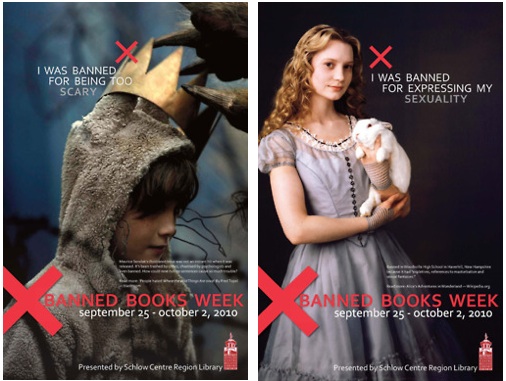
WHY DO YOU READ BOOKS?
Chris Douglass: Why do I read?? Cos there’s usually sod all on telly !! It also helps keep the old indoor video in good working order !! Imagination is a very under used thing and a damn good read helps keep the pictures coming !!
Julie Hastings: I read to help with the windmills in my head that stop me getting to sleep
Mirjam Woodburn: To escape reality!
Evaliina Seume: To relax, to learn, to switch off, to be amused, to travel (or imagining things) around this world and others, to explore, to fantasise, to feel, to empathise ...
I wish I had more energy and time to read
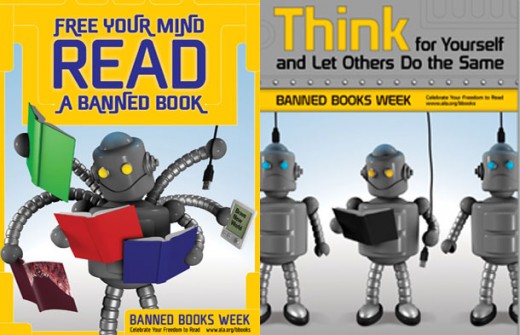
IS THERE NO END TO THE UFFISHNESS?
Reading has opened whole new worlds to me. I’ve visited places and seen things because books allowed me to do so. In the immortal words of Dr Seuss: Oh the thinks you can think….oh the places you’ll go. When I was ten and my family moved to Kathmandu, Nepal, I attended an international school and had to learn to function in English. I literally flew through ESL (English as a Second Language classes) at quite a speed simply because I switched to English extracurricular reading rather than Dutch. No doubt the fact that there was a latent knowledge of airplane and airport English somewhere in the deep burrows of my mind helped but the subconscious learning effects of reading a foreign language are quite spectacular, because it seems such a passive way to pick up a language.
Moreover, Kathmandu’s Lincoln School, in the early eighties, had a reading culture. There was no internet, we had three early Apple computers which didn’t do much beyond emit bright green letters that would burn themselves into your retinas and respond to simple Basic commands, so gaming was limited to those few, those happy few, who had Ataris with space invaders on it. A rare few, usually the Yankees, had VCRs and a limited supply of movies, which more or less explains my proud claims to have seen Star Wars: A New Hope over 30 times and Raiders of the Lost Ark at least two dozen times. We had a small school library at Lincoln School which was well visited. Being kids, we loved serials, and would know –or inquire- when the next part would come out. When these new additions to the series would reach Kathmandu at last, they would spend a few precious days sitting on a special shelf for new arrivals. In the breaks we would troop into the library, just to watch the new books in their unblemished shiny jackets. If the librarian wasn’t watching we’d try and get hold of them, just to smell that crisp clean smell of a brand new book. After that it was a waiting game, waiting till your turn came, because there were waiting lists for new books, kids would sign up months in advance, the lists were long and by the time your name came up you’d visit the library daily in the hope that the previous borrower had returned the book a day or two early. This waiting game reached something akin to hysteria whenever a new edition of one of Lloyd Alexander's Chronicles of Prydain was due. Taran the pig-herder had a big impact on us in the early eighties and I must confess I like to wander and wonder with him still. As for Princess Eilonwy, well *deep sigh*.
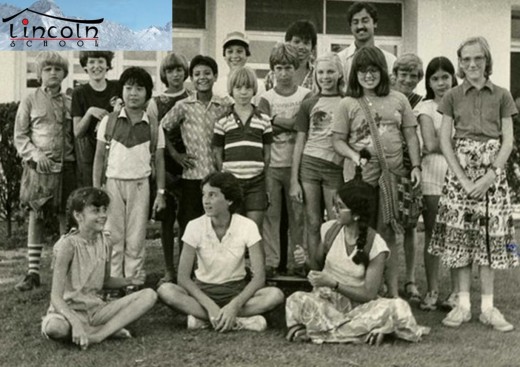
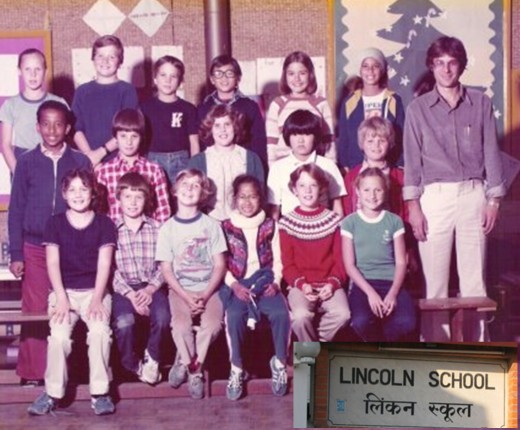
THE LAST UFFISH THOUGHTS FOR THIS WEEK
A bit of a pattern there, with kids liking serials and whatnot, isn’t there? Yup, busted. Sure, I read the Famous Five and the Hardy Boys and such. But not in phases that focused exclusively on one or the other. I happily swapped a Famous Five for James Clavell’s Shogun (I was eleven, my mother was summoned to school by a worried teacher), then to an Asterix or two, to a Hardy Boys, to Leon Uris’ Exodus, to a TinTin and then any Judy Blume, Astrid Lindgren, Roald Dahl, Thea Beckman or Tonke Dragt, to be followed by Donald Duck and the Old Testament. We didn’t keep track in literature portfolios like the kids in Dutch secondary education do today, which is probably a good thing, I think I’d be forced into therapy if anyone ever tried to make sense of my reading choices. In the end, I read them because they had letters and words in them. I don’t read books really, I devour them. I can feel physical pangs of mental hunger for reading material. If you’re still with me at this stage of this entry, you probably recognize a great deal of all this and know what those pangs feel like.
Come to think of it, there’s also a pattern in stories that appealed in particular, which I now recognize as archetypal appeal. There’s a story from Dutch primary school, author and title long forgotten, but the essence of the magic it contained for me was a mysterious door in the wall of a back garden, and a mystical wood behind it which was either magical or made so by the visits made by the kids. Similarly a story that held great appeal was Zilpha Keatley Snyder's The Egypt Game, in which kids turn a city shed into an Ancient Egyptian temple. Bridge to Terabithia falls into this category as well (one of my annual reads), as does that wondrous wardrobe in the Narnia series and of course, Alice in Wonderland.
I was delighted to see Alice on the reading list by the way. In a way, it feels like cheating, I should really focus on something I have never read before and expand my literary horizon, definitely no punishment and something I was genuinely looking forward to in this course. However, ignoring Alice is a sin that would be on a par with the worst of the mortal sins: She is, after all, one of my oldest friends.
More on Alice then, but not till the first proper reading diary entry. I shall use the second installment of this diatribe to discuss something else which is part of the mix of reading and growing up: Sex. Yup, surrounded by embarassed adults and ignorant contemporaries who make it up as they go along in order to appear experienced, literature is one way of discovering sex and sexuality. If and when you can get your hands on the offending passages of course, because, as we will find out, there are forces of protective guardians who will go to great lengths to keep sex all to themselves.
Till then: Shut up and go away. I’m reading.
(Mandatory Soundtrack: http://www.youtube.com/watch?v=BuRuwR2JSXI)
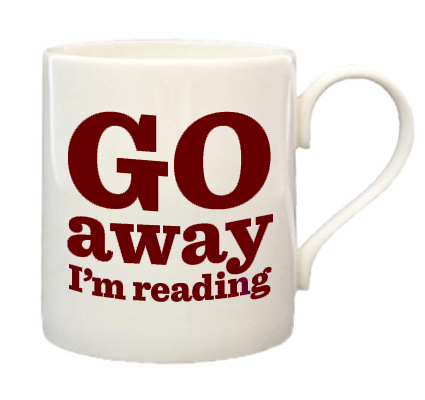
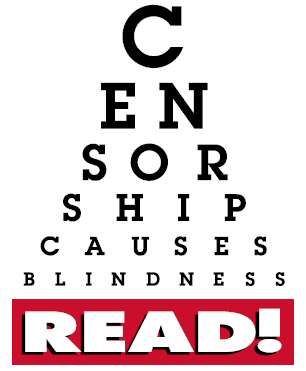
SO WHAT DO YOU RECKON?
Banned books:
